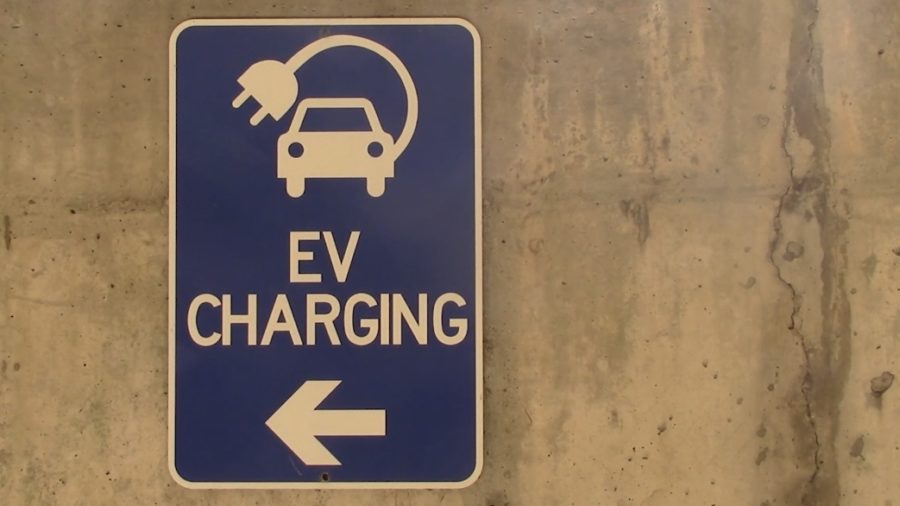Electric Vehicles Growing on Campus
April 13, 2023
Parking at charging stations on campus has become increasingly competitive for electric vehicle owners at Central Connecticut State University.
“In 2015, we started off with just two charging stations,” Dr. Charles Button, chair of CCSU’s Geography Department said. “Now, we have 14, but there are days when I get to school and there’s none of those parking spots open.”
Button has been driving an EV since 2013 and is the founder of CCSU’s Global Environmental Sustainability Action Coalition. Button and other members on GESAC proposed the first notion to have charging stations installed on campus over eight years ago.
CCSU has 14 level two charging stations located across three parking garages on campus. Charging is free for the drivers who plug in, and the parking spots are on a first-come, first-serve basis.
The U.S. Bureau of Labor Statistics reported that electric car sales in the U.S. increased from 0.2% of total car sales in 2011 to 4.6% in 2021. The number of EVs on the road jumped from about 22,000 to a little over 2 million over the 2011 to 2021 decade.
Button hosted the 16th annual Global Environmental Sustainability Symposium in Alumni Hall on April 3 which featured an EV display and panel discussion.
“Central currently holds the most annual environmental sustainability symposiums in a row in the country,” Button said.
The EV display took place in the student center parking lot where local EV owners talked about clean-air benefits, cost-savings and offered test drives to those who were interested.
Freshman Neemit Thammaracksa currently does not own a vehicle but checked out the event to see what his options were for when he does.
“I was drawn in by the animatronics,” Thammaracksa said. “I’m pretty lazy, being able to see what the car can do itself was pretty convincing.
The factors driving up the consumer demand for EVs include environment protection, government policies and automakers commitment to switching completely over to electric
The U.S. Environmental Protection Agency reported in 2023 that “over the lifetime of the vehicle, total greenhouse gasses emissions associated with manufacturing, charging, and driving an EV are typically lower than the total green house gasses associated with a gasoline car.”
The EPA also noted how EVs have zero tailpipe emissions and multiple renewable energy sources to obtain electricity unlike gas cars.
CCSU has not announced any plans to accommodate the rising demand for EV drivers on campus. Button said he predicts that as we go further into the future, more charging stations will be added and EVs will eventually take over.
“I can totally see the university adding more,” Button said. “We’re going to need them, we’re moving into a completely new world.”







